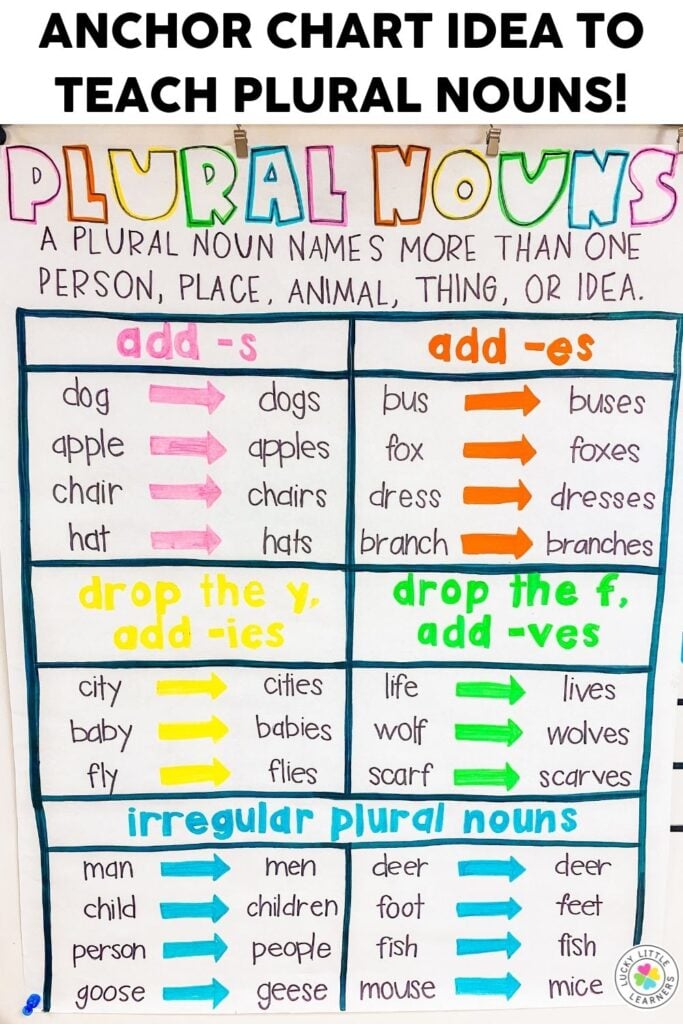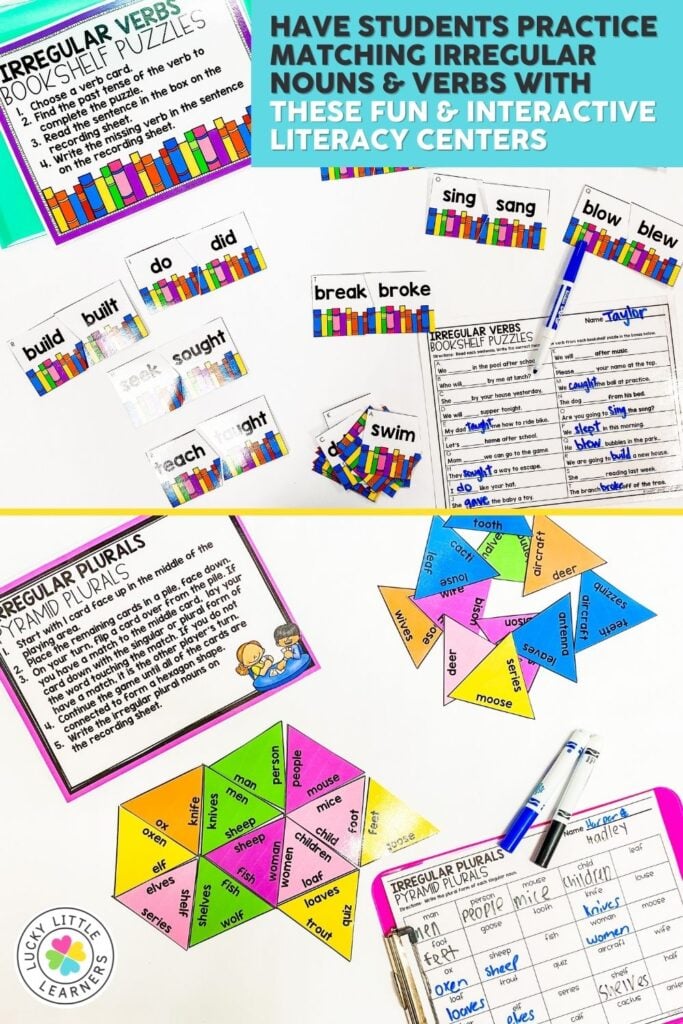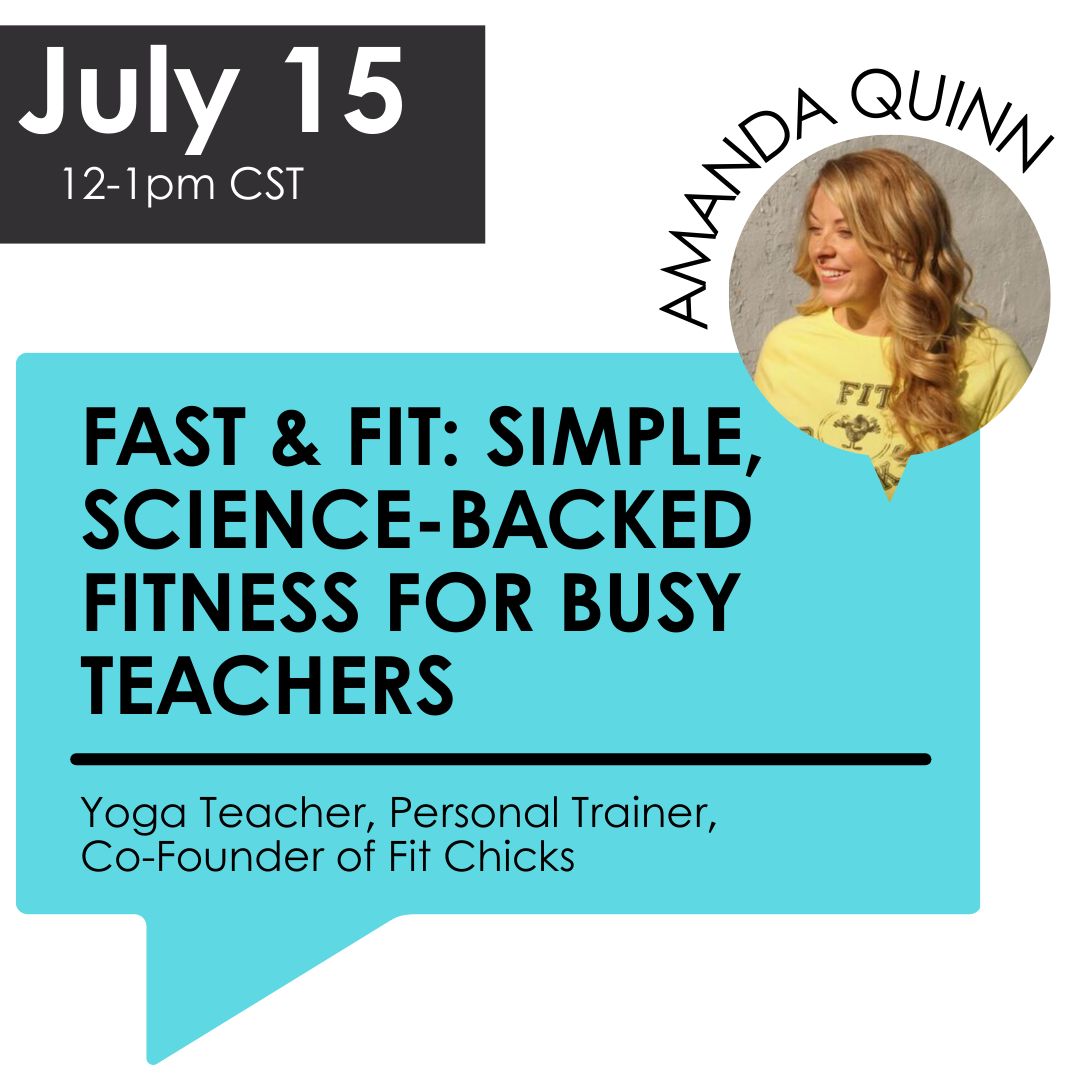If you look up “irregular” in the dictionary, you’ll find a definition something like this: “not conforming to the usual pattern”. Ok, so how do we teach students something that doesn’t follow the usual grammar patterns (like irregular plural nouns and verbs)? Keep reading for some tips that will demonstrate how to teach irregular plural nouns and irregular verbs fun and easy in your second grade classroom!

Enhance Literacy with Embedded Grammar Lessons
Research on the Science of Reading (SOR) dating back to the 1970s shows that teaching grammar as isolated rules doesn’t effectively transfer to writing and speaking. What works better is embedding grammar within the context of writing. This is why our writing program Lucky to Learn Writing (LTLW) includes grammar skills integrated into writing lessons. This approach ensures that the same skills and standards are met, but in a meaningful context that connects with the rest of the literacy curriculum.
Get this exclusively on All Access

Join All Access to download everything we've ever made.
We also recognize the value of targeted practice and intervention to reinforce these skills. That’s why we’ve compiled a list of our favorite grammar activities that provide additional practice and intervention opportunities. These activities are designed to complement our integrated approach, ensuring students have a well-rounded understanding of grammar concepts. Let’s dive into these engaging and effective activities!
Be sure to read all the way to the end for a list of our other posts in this “Teaching Grammar” blog series – dedicated to making teaching 2nd grade grammar fun and effective at the same time!
What are Irregular Plural Nouns?
Irregular plural nouns are nouns that do not get the traditional “s” ending to become plural. Instead, they may follow a new rule to become plural.
Spelling Rules for Plural Nouns
- When a word ends with an f, change the f to a v and add es. Example: loaf-loaves
- When a word ends with an fe, change the f to v and add an s at then end. Example: life-lives
- If a word ends with an o, add an es to it. Example: potato-potatoes
- Sometimes the vowels change to show a plural. Example: goose-geese
- Some words seem to change completely in their plural form. Example: mouse-mice
- Or, they might not change at all! For example: deer stays deer when plural (so does moose)
AND there are always exceptions to these rules! Wow! That can get confusing! Consider making an irregular plural nouns anchor chart, like the one below for your students to reference.

What are Irregular Verbs?
Students love learning about verbs because it usually involves some movement. And they usually catch on to past tense verbs pretty quickly. But what about irregular verbs? That is, verbs that don’t get the traditional “ed” ending when in past tense.
Examples of Irregular Past Tense Verbs
eat-ate
say-said
buy-bought
Once again, it might be helpful to make an irregular verbs anchor chart, similar to the one below, for students to reference!

Why teach irregular plurals and verbs?
It might seem like it would be easy to skip these concepts all together when teaching grammar. However, it is important for students to gain an understanding of these words to become a thorough speaker, reader and writer. They will learn these words through speaking and listening as well as through grammar instruction.
5 Resources to Make Irregulars Easy to Understand
Alright, so where to start? What activities can a teacher use to aid in instruction?! Check out these fun and effective resources below!
1. Irregular Plural Nouns Video Lesson
This video provides a great and engaging overview. It’s a great place to start when it is time to introduce the concept of irregulars.
2. We Went Camping Video
This video simply introduces several irregular verbs through a story. Teachers could write them down before hand (the irregular verbs are shown in red in the video, so easy to find) on an anchor chart and discuss the verb tenses before or after the video.
3. 2nd Grade Literacy Centers
Our literacy centers bundle includes an Irregular Plural Nouns Puzzle AND an Irregular Verbs Bookshelf Puzzles game. The students will match a singular picture with its plural picture match, then write the plural noun.

Get Grammar Centers
4. Grammar Day by Day
This resource can be used in so many ways! The teacher can pick and choose the order of concepts taught too! There is even a section that focuses on irregular plurals & verbs!

Get Grammar Day by Day
5. Spiral ELA
This is another great (differentiated) resource to teach and review grammar with your students, including irregular nouns & verbs.

Get Spiral ELA
How to Teach Other 2nd Grade Grammar Skills
Is it time for a new concept in grammar? We have a post for that!
Shades of Meaning-Verbs & Adjectives
Happy teaching!








0 Comments